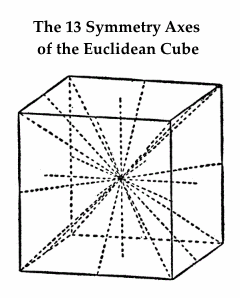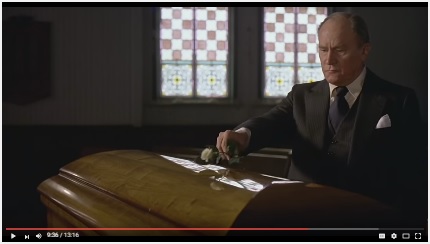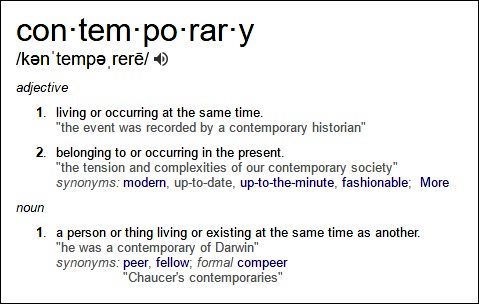The Wiltern Theatre, Los Angeles, on December 8, 2012 —
See also this journal on that date.
"At CERN the LHC has reached design luminosity,* and is
breaking records with a fast pace of new collisions. This may
have something to do with the report that the LHC is also
about to tear open a portal to another dimension."
See also the following figure from the Log24 Bion posts —

— and Greg Egan's short story "Luminous":
"The theory was, we’d located part of the boundary
between two incompatible systems of mathematics –
both of which were physically true, in their respective
domains. Any sequence of deductions which stayed
entirely on one side of the defect – whether it was the
'near side', where conventional arithmetic applied, or
the 'far side', where the alternative took over – would
be free from contradictions. But any sequence which
crossed the border would give rise to absurdities –
hence S could lead to not-S."
— Greg Egan, Luminous
(Kindle Locations 1284-1288).
* See a definition.
From Psychoanalytic Aesthetics: The British School ,
by Nicola Glover, Chapter 4 —
|
In his last theoretical book, Attention and Interpretation (1970), Bion has clearly cast off the mathematical and scientific scaffolding of his earlier writings and moved into the aesthetic and mystical domain. He builds upon the central role of aesthetic intuition and the Keats's notion of the 'Language of Achievement', which
… includes language that is both Bion distinguishes it from the kind of language which is a substitute for thought and action, a blocking of achievement which is lies [sic ] in the realm of 'preconception' – mindlessness as opposed to mindfulness. The articulation of this language is possible only through love and gratitude; the forces of envy and greed are inimical to it.. This language is expressed only by one who has cast off the 'bondage of memory and desire'. He advised analysts (and this has caused a certain amount of controversy) to free themselves from the tyranny of the past and the future; for Bion believed that in order to make deep contact with the patient's unconscious the analyst must rid himself of all preconceptions about his patient – this superhuman task means abandoning even the desire to cure . The analyst should suspend memories of past experiences with his patient which could act as restricting the evolution of truth. The task of the analyst is to patiently 'wait for a pattern to emerge'. For as T.S. Eliot recognised in Four Quartets , 'only by the form, the pattern / Can words or music reach/ The stillness'.30. The poet also understood that 'knowledge' (in Bion's sense of it designating a 'preconception' which blocks thought, as opposed to his designation of a 'pre -conception' which awaits its sensory realisation), 'imposes a pattern and falsifies'
For the pattern is new in every moment The analyst, by freeing himself from the 'enchainment to past and future', casts off the arbitrary pattern and waits for new aesthetic form to emerge, which will (it is hoped) transform the content of the analytic encounter. 29. Attention and Interpretation (Tavistock, 1970), p. 125 30. Collected Poems (Faber, 1985), p. 194. 31. Ibid., p. 199. |
See also the previous posts now tagged Bion.
Preconception as mindlessness is illustrated by Rubik's cube, and
"pre -conception" as mindfulness is illustrated by n×n×n Froebel cubes
for n= 1, 2, 3, 4.
Suitably coordinatized, the Froebel cubes become Galois cubes,
and illustrate a new approach to the mathematics of space .
For the Feast of SS. Peter and Paul —

In memory of Alvin Toffler and Simon Ramo,
a review of figures from the midnight that began
the date of their deaths, June 27, 2016 —


The 3×3×3 Galois Cube
See also Rubik in this journal.
"The domain of O has been explored by philosophers and mystics
under titles like the Absolute, Ultimate Reality or Ultimate Truth,
the Ground of Being, God or the godhead. O is the world of Plato’s
ideal forms, Kant’s things-in-themselves, Bion’s pre-conceptions,
Klein’s inborn phantasies and Jung’s archetypes."
— Barbara Stevens Sullivan on page 38 of her book
The Mystery of Analytical Work: Weavings from Jung and Bion ,
Routledge first edition, 2010
See also Bion in The Search for Charles Wallace, and …
Click on the image for some context.
See Source + Michener and The Source (Dec. 29, 2014).
See also an adapted AA saying in this evening's previous post,
and Mary Karr in a "Damnation Morning" post.
“The experience of my films is a little like daydreaming.”
— Peter Hutton, Filmmaker With Austerely Romantic Worldview, Dies at 71,
in The New York Times this evening
"Real estate before personalities"
— Adapted AA motto


(Suggested by posts tagged Getcha.)
Outside the Box (as opposed to the Eve of "Interiors").

"The film ends with the family silently attending Eve's funeral,
each placing a single white rose, Eve's favourite flower and a
symbol of hope to her, on Eve's wooden, perfectly polished coffin."
— Wikipedia article on Woody Allen's 1978 film "Interiors"
"The story of our lives is written in interiors . . . ."
— A "Defender of Notable New York City Interiors"
(NY Times headline today) who reportedly died at 78
on June 16, 2016, a date known as Bloomsday.
See also posts now tagged Bloomsday Eve 2016.
From a search in this journal for Euclid + Galois + Interplay —


The 3×3×3 Galois Cube
A tune suggested by the first image above —

Rubik's Cube Core Assembly — Swarthmore Cube Project, 2008 —
"Children of the Common Core" —
There is also a central structure within Solomon's Cube —

For a more elaborate entertainment along these lines, see the recent film
"Midnight Special" —
From a requiem for a fashion photographer who reportedly
died today at 87 —
"Although he sometimes photographed upward of 20
gala events a week, he never sat down for dinner at
any of them and would wave away people who walked
up to him to inquire whether he would at least like
a glass of water.
Instead, he stood off to the side photographing women
like Annette de la Renta and Mercedes Bass
in their beaded gowns and tweed suits.
As Anna Wintour put it in the documentary about
Mr. Cunningham,
'I’ve said many times, "We all get dressed for Bill." ' "
And un dressed for · · · · ?
" 'Hear what he says,' the speaker concludes,
'The dauntless master, as he starts the human tale.' "
— B. J. Leggett on page 66 of
The Cambridge Companion to Wallace Stevens
(See "An Ordinary Evening on Page 66,"
this journal on Monday, June 20, 2016.)
See also "Dauntless" in the Divergent saga
and a character from that saga in the previous post.
The title is a reference to the Chicago character named "Four"
in Veronica Roth's Divergent series.
"In July 2014, Roth revealed that she initially wrote
Divergent from Four's point of view . . . ." — Wikipedia
Other Chicago-related stories — "Raiders of the Lost Code"
(on the recent murder-suicide of two Chicago Jungians)
and the following —
See also Jungian narrative art in
https://redice.tv/news/
on-the-nature-of-four-jung-s-quarternity-mandalas-the-stone-and-the-self .
From a work cited in the previous post —
"… representation of hell and the horrors
of the burial ground are missing."
— Page 384 of Joseph Campbell's The Mythic Image ,
Princeton University Press, 1981
(First published in 1974)
For those who regret the above omission …
A review of a book published in 1977 —
"Its materials are fear and death, hallucination
and the burning of souls."
The book's author reportedly died Thursday, June 23, 2016.
See also, from 11 AM ET that day, "Raiders of the Lost Code."
The previous post suggests a review of the phrase
" symbol of the self " in this journal.
From a web page —
Breaking the Code of the Archetypal Self:
An Introductory Overview of the Research Discoveries
Leading to Neo-Jungian Structural Psychoanalysis
Dr. Moore will introduce his research and discoveries
with regard to the deep structures of the Self.
Tracing the foundations in the tradition of Jung’s
affirmation of the collective unconscious, Moore
will present his “decoding of the Diamond Body,”
a mapping of the deep structures of the Great Code
of the psyche. . . .
From the same web site —
Googling "Jung" + "Diamond Body" shows that
Moore's terminology differs from Jung's.
The octahedron that Moore apparently associates
with his "diamond body" was discussed by Jung
in a different context. See selections from Ch. 14
of Jung's Aion : "The Structure and Dynamics of the Self."
Dr. Moore appears as well in the murder-suicide story
of last night's 11:18 PM ET post.
For the relevance of Aion to "deep structures,"
see Jung + Diamond + Structure in this journal
and, more specifically, "Deep Structure."
See posts now tagged Starbursts,
and a search for Nabokov + Starflight.
(Continued from December 19, 2007)
http://chicago.suntimes.com/news/
colleagues-shocked-as-noted-psychologists-die-in-murder-suicide/
Another tutelary figure —
"He attended the Trinity School in Manhattan
before enrolling in the Lawrenceville School
in New Jersey, where he began writing poetry.
He graduated in 1957. Under his yearbook
photograph appeared the motto:
'Plato or comic books, I’m versatile.' "
He reportedly died on Bloomsday, June 16.
See also this journal on that date —
Update of about 6:40 AM ET on June 22, 2016 —
"Que cantaba el rey David." Happy birthday to Kris Kristofferson.
“The central poem is the poem of the whole,
The poem of the composition of the whole”
— Wallace Stevens, “A Primitive like an Orb”
The symmetries of the central four squares in any pattern
from the 4×4 version of the diamond theorem extend to
symmetries of the entire pattern. This is true also of the
central eight cubes in the 4×4×4 Solomon’s cube .
"I've got a brand-new pair of roller skates …"
Related material — Salinger in the Park and
Philosophy in a New Key.
For further background to this morning's post Plan 9 Continues,
see posts tagged Sacred Space —
See …
At the Still Point … (February 12, 2008)
For Balanchine's Birthday (January 9, 2007)
Go Set a Structure (Various dates)
and …
For those who prefer the red pill to the blue pill —
See as well this afternoon's related Vanity Fair piece.
From a poet discussed in Plato's Meno —
Click the above image for an animated version of Feb. 12, 2008.
See also this journal on Feb. 12, 2008.
"He grew up near Stratford-upon-Avon
and went to school on a small scholarship."
— NY Times obit this afternoon for
a theatre designer who reportedly died
on June 10. See also this journal
on that date.
* The title refers to the recent posts Hypertime
and Midnight in Herald Square. See also Julavits
in a post of March 31, 2015.
In memory of New Yorker artist Anatol Kovarsky,
who reportedly died at 97 on June 1.

Note the Santa, a figure associated with Macy's at Herald Square.
See also posts tagged Herald Square, as well as the following
figure from this journal on the day preceding Kovarsky's death.

A note related both to Galois space and to
the "Herald Square"-tagged posts —

"There is such a thing as a length-16 sequence."
— Saying adapted from a young-adult novel.
The Hypertime post from 11 PM yesterday suggests
a review of one sort of narrative sequence —
Here the aleph may be regarded as a sort of
glass slipper (see last midnight's post) found by
Alan Moore. (Moore, mentioned in last night's
Hypertime post, is the author of Lost Girls .)
See Three Approaches to The World as Myth
(Log24, September 16, 2015).
Πολυμερῶς καὶ πολυτρόπως πάλαι ὁ Θεὸς λαλήσας . . . .
( Long Day's Journey into Nighttown continues. )

— From a book reviewed in the April 1923
Bulletin of the American Mathematical Society
From "The Back Page," Notices of the American Mathematical Society ,
June-July 2016 —

Related material: Page 1 of Screenland , April 1923 —
The previous post suggests a search in this journal
for "Deathtrap."
"Rubik’s Cube® used by permission
Rubik’s Brand Ltd. www.rubiks.com."
— Bernd Sturmfels, June-July 2016 Notices
of the American Mathematical Society ,
Volume 63, Number 6, page 605
"Tenser, said the Tensor …." — The Demolished Man

Max von Sydow in Branded (2012)

"My AMS invited address at the SIAM Annual Meeting July 11–15
in Boston discusses the extension of eigenvectors and singular
vectors from matrices to higher order tensors."
— Bernd Sturmfels in the June-July 2016 AMS Notices
See also Sturmfels in this journal — for instance, in
"Expanding the Spielraum," a post of Feb. 3, 2015 —
A search for "Purple" in this journal suggests a review of Transition,
a Log24 post of November 21, 2011. A related image —
For some philosophical background, see (for instance) Jeremy Butterfield,
"Some Aspects of Modality in Analytical Mechanics," and …
For those who prefer entertainment —
The title refers to the previous post, which quotes a
remark by a poetry critic in the current New Yorker .
Scholia —
From the post Structure and Sense of June 6, 2016 —
Structure
Sense
From the post Design Cube of July 23, 2015 —
"The poem on its own is negligible,
instructing a human 'intelligence /
So late dredged up' to master
the primordial stone,
which 'may have contempt /
For too-familiar hands.'
The stone is language,
the diamond is a poem:
as in a model kit,
all the pieces come labelled
and the instructions are easy to follow."
Dan Chiasson in The New Yorker ,
issue dated June 20, 2016, on a
1955 Adrienne Rich poem,
"The Diamond Cutters"
In memory of philosopher Morton White,
who reportedly died at 99 on May 27.
See Lowry + Razor and Joyce + Razor.
"White is credited with broadening the scope of
topics traditionally studied by philosophers…."
See a commencement address from Friday, May 22, 2015,
and a post from this journal on that date.
Jews on Style continues …
From a Washington Post obituary this morning —
"For the past 30 years, while teaching at New York University’s
law school, Dr. Bruner explored the idea of storytelling as a
fundamental way of understanding the nature of the world
around us. He believed that the choices we make in telling
stories 'become so habitual that they finally become recipes
for structuring experience itself, for laying down routes into
memory,' he said in 1987.
'This is a mode of cognition,' Gardner said, 'at least as
important as STEM' — the science, technology, engineering
and mathematics model of instruction that has gained
currency in recent years.
'He made narrative a form of thinking,' Gardner added.
Jerome Seymour Bruner was born Oct. 1, 1915,
in New York City to Jewish immigrants from Eastern Europe."
Related material —
"… the war of 70-some years ago
has already become something like the Trojan War
had been for the Homeric bards:
a major event in the mythic past
that gives structure and sense to our present reality."
— Justin E. H. Smith, a professor of philosophy at
the University of Paris 7–Denis Diderot,
in the New York Times column "The Stone"
(print edition published Sunday, June 5, 2016)
In memory of a British playwright who reportedly
died at 90 this morning —
Structure
Sense
Explorations in Media Ecology
Volume 12 Numbers 3 & 4
© 2013 Intellect Ltd Article.

For some background, see Bullshit Studies.
A death on May 29, from The Fresno Bee —
See as well "La Diadema de la Muerte."
Previous references in this journal to the "Church of Synchronology"
suggest a review of that phrase's source —
"The fine line between hokum and rational thinking
is precisely the point of The Lost Time Accidents ;
a brick of a book not just because of its length but
because of the density of both the prose and the
ideas it contains.
It is, in a nutshell, a sweeping historical novel that's
also a love story but is rooted in time-travel
science fiction and takes on as its subject
the meaning of time itself. This is no small endeavor."
— Janelle Brown in The Los Angeles Times
on February 4, 2016
See also …
From this morning's news, a cultural icon —
![]()
From November 18, 2015, four icons —
— the three favicons above, and the following:

"The editors are also grateful to
T. Kibble and Imperial College Press
for permission to reprint B. Zumino's paper
'Supersymmetry: A Personal View' . . . ."
— Preface to Symmetry in Mathematics and Physics
(AMS, 2009), a book based on talks at
a UCLA conference of Jan. 18-20, 2008
(For the book's title page, see yesterday morning's post Symmetry.)
This suggests a search in this journal for the term "supersymmetry."
That search yields some links that may be of further interest to
devotees of the Church of Synchronology.
For a physicist who reportedly died at 83 yesterday
(Thursday, June 2, 2016) —
Also on March 13, 2013 —
A note for the Church of Synchronology —

See as well the word "contemporary" in the previous post.
A review of some recent posts on Dirac and geometry,
each of which mentions the late physicist Hendrik van Dam:
The first of these posts mentions the work of E. M. Bruins.
Some earlier posts that cite Bruins:
"The allusion to 'the most precious square of sense' shows
Shakespeare doing an almost scholastic demonstration of
the need for a ratio and interplay among the senses as
the very constitution of rationality."
— Marshall McLuhan, The Gutenberg Galaxy ,
University of Toronto Press, 1962, page 13
"What Shakespeare refers to in Lear as the 'precious
square of sense' probably has reference to the traditional
'square of opposition' in logic and to that four-part analogy
of proportionality which is the interplay of sense and reason."
— McLuhan, ibid. , page 241
This is of course nonsense, and, in view of McLuhan's pose
as a defender of the Catholic faith, damned nonsense.
Epigraph by McLuhan —
"The Gutenberg Galaxy develops a mosaic or field
approach to its problems."
I prefer a different "mosaic or field" related to the movable
blocks of Fröbel, not the movable type of Gutenberg.
Principles before Personalities — AA Saying .
Principles —
See Schoolgirl Problem in Wikipedia.
Personalities —
See Alexandra Alter in the May 26 online New York Times :
"With the proliferation of 'girl' titles,
there are signs that the trend may have peaked;
it already seems ripe for parody."
Update of 12:40 PM ET on Wednesday, June 1, 2016 —
A note for the Church of Synchronology …
See a post from this journal on the date of the Alter piece, May 26:
(Click image for the rest of the post .)
Powered by WordPress